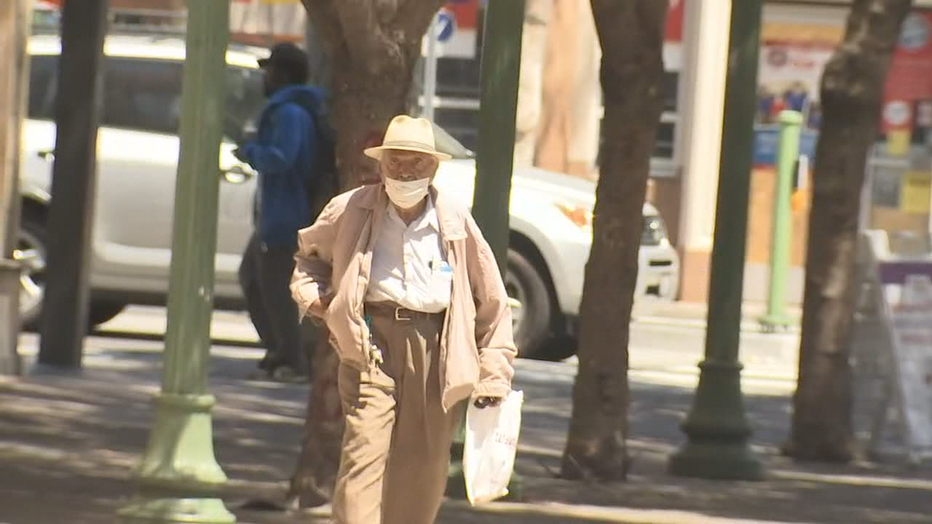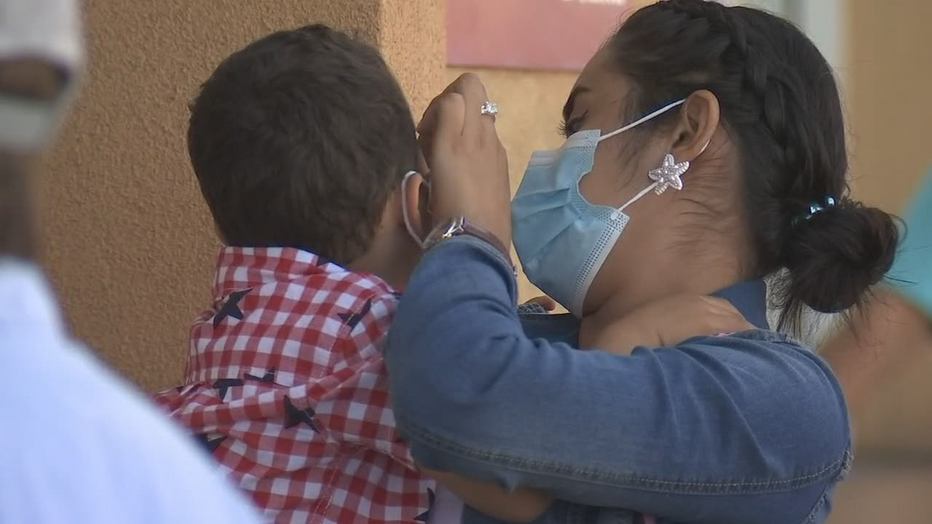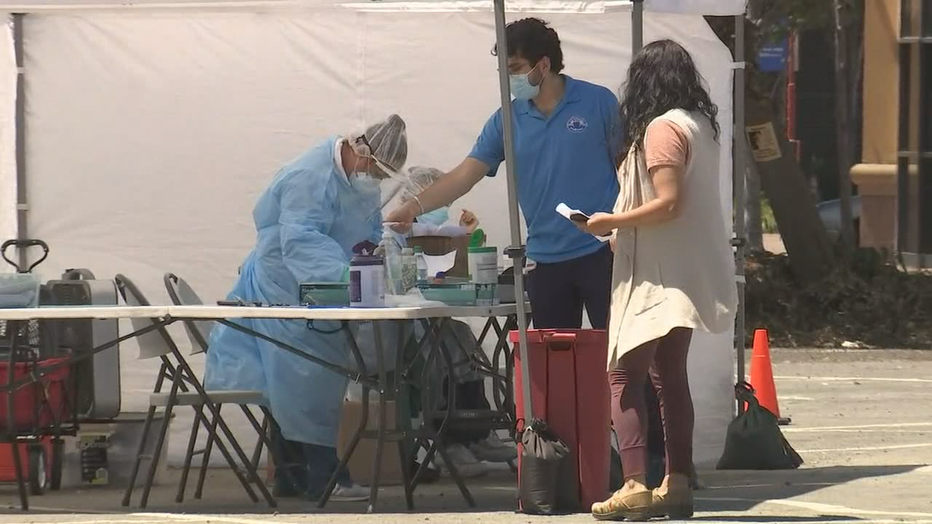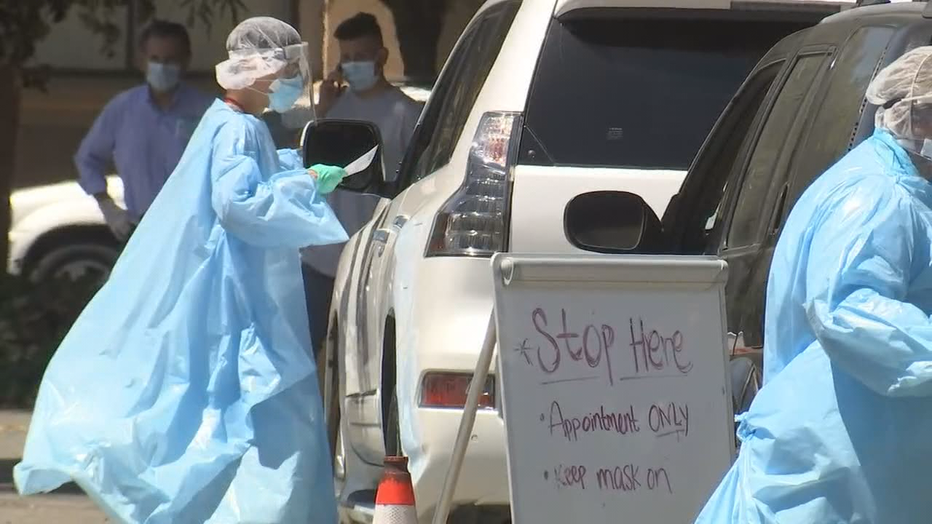Bay Area's Latinx community struggles to access reliable information during coronavirus
OAKLAND, Calif. - The Bay Area’s Latinx community has struggled to access reliable information in Spanish on the coronavirus pandemic, but organizations are making strides in reaching the most vulnerable.
Oakland’s Fruitvale District is getting hit hard by COVID-19. Louie Lujan is a longtime resident of the area. He just lost his oldest sister, Juanita Lujan, to the virus. He said she was a few days shy of her 85th birthday. Two of his other sisters also contracted the virus, but survived.
“I try to tell people that this virus is real and I share with them the loss of my sister to let them know that in order to stay safe you need to follow the guidelines for keeping safe,” Lujan said.
The Latinx community in California is being disproportionately affected by the coronavirus. East Oakland is particularly bad. City officials said cases here are three to four times higher than the rest of Alameda County.
Health experts across the country acknowledge that there’s been a lack of reliable information on COVID-19 in Spanish that has affected Latino and Hispanic communities, among other factors.
La Clinica de la Raza is doing its own outreach at its testing site near the Fruitvale BART station, according to pediatric registered nurse Eric Solorio.
“Here at the testing site we’re fortunate to be able to provide some of the outreach,” Solorio said. “We took it upon ourselves to translate these pamphlets and those are also being handed out at our testing sites.”
Solorio said La Clinica has partnered with Street Level Health Project and Alameda County to hire a group of 10 contact tracers who are working to connect resources to people who test positive for the virus.
“We can’t expect our patients or our community members to get connected to resources that they don’t know exist,” Solorio said.
Gabriela Galicia, executive director of Street Level Health Project, said the contact tracing group has already been able to reach nearly 800 people within two weeks of its inception.
"In this community, there's a lot of people with low literacy, low education, and there's also a lot of information that is very academic and medical and it's on technology that our community doesn't access,” Galicia said.
Street Level Health Project has been busy making phone calls and doing in-person outreach for Latinos and the indigenous Guatemalan community that speaks “Mam.”
“Their language is not a written language so they are even at a more disadvantage than those in the Latino community,” Galicia said. “Although there is information in Spanish. It’s not reaching the most vulnerable right now.”
Part of the reason why is because many families live in multigenerational households and can’t afford not to work.
Galicia said in some cases essential workers and day laborers don’t want to know that they’ve tested positive for COVID-19 because they would have to inform their employer, isolate from their families, and struggle to survive.
“We had workers telling us that they didn’t have work for three months,” she said. “They were telling us, ‘If the virus isn’t going to kill us, it’s really going to be the lack of jobs and economy that’s going to kill us.’”
Oakland City Councilman Noel Gallo represents the Fruitvale District. He said testing sites and food distribution events are helping spread the word about social distancing, wearing masks, and washing your hands. He said also said volunteers, including himself, have gone to businesses in the Fruitvale to sign up employees to get tested. Gallo said that is particularly important because many Latino residents are hesitant to seek medical services.
“The reality is many families live 10 to a home, 10 to a room, and we have to work,” Gallo said. “That has been a big challenge from the very beginning. People just cannot stay at home.”
Advocates hope the area can soon work on a messaging strategy. Street Level Health Project said an outreach campaign is in the works with Alameda County to hand out masks and information in the Fruitvale, hopefully by the end of August.
“When it comes to community outreach there’s always more we can do,” Solorio said.






